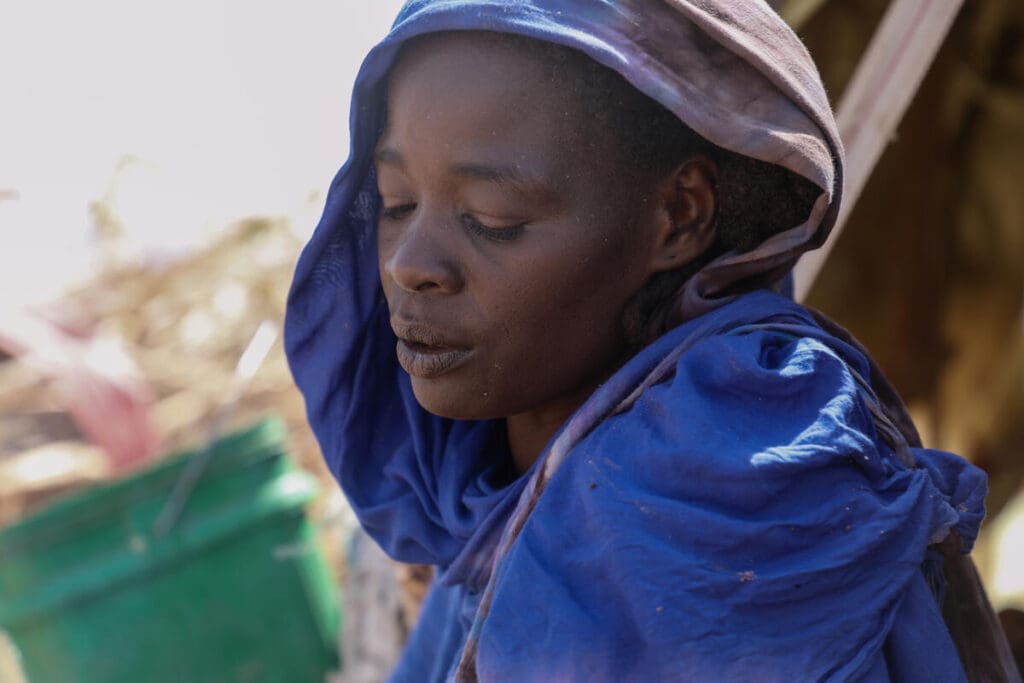WFP Operations Risk Grinding to a Halt in Chad as Refugees Flee Darfur Killings

N’DJAMENA – The United Nations World Food Programme (WFP) warns of a looming halt to its food and nutrition assistance to 1.4 million crisis-affected populations in Chad – including newly arrived Sudanese refugees – due to funding constraints.
This comes as aid agencies scramble to respond to a fresh wave of refugees fleeing an unimaginable humanitarian crisis unfolding in neighboring Darfur amid reports of mass killings, rapes and widespread destruction.
In just the last six months of conflict in Sudan, as many refugees have fled into Chad as had crossed the border in the preceding 20 years starting from the outbreak of the Darfur crisis in 2003. This brings the total number of refugees in Chad to over 1 million, making the country host to one of the largest and fastest-growing refugee populations in the whole African continent.
“This forgotten crisis has metastasized as the world’s eyes are on other emergencies. It is staggering but more Darfuris have fled to Chad in the last six months than in the preceding 20 years. We cannot let the world stand and allow our lifesaving operations grind to a halt in Chad,” said the U.N. World Food Programme’s Country Director in Chad Pierre Honnorat.
“You can see the fear and despair in people’s eyes as they cross the border with nothing but harrowing tales of violence. Collectively, we must find a way to support the women, children and men who are bearing the full brunt of this crisis. Cutting our assistance is simply not an option because it will have untold consequences for millions of people, jeopardizing years of investment in fighting hunger and malnutrition in Chad,” Honnorat warned.
Dwindling funding and soaring immense humanitarian needs are forcing the U.N. World Food Programme into making brutal choices. In December, the U.N. World Food Programme will be forced to suspend assistance to internally displaced people and refugees from Nigeria, Central African Republic and Cameroon due to insufficient funds. From January, this suspension will be extended to 1.4 million people across Chad – including new arrivals from Sudan who will not receive food as they flee across the border.
Millions in Chad already face acute hunger and malnutrition – particularly children – due to a confluence of calamities including the impact of the climate crisis, global economic headwinds that drive up food and fuel prices, declining agricultural production, and intercommunal tensions. The unfolding refugee crisis piles further pressure on food insecure communities that already struggle to get by. In August of this year, the U.N. World Food Programme was only able to assist 1 million people of the 2.3 million it had targeted, leaving 1.3 million people without assistance during the peak of the lean season when hunger bites the hardest.
Malnutrition is also a major concern, with 1.36 million children under 5 suffering from malnutrition. The situation among refugee communities is even more concerning, with 90% of new arrivals, 77% of pre-existing refugees and 67% of local communities reporting poor or borderline food consumption, according to the latest Emergency Food Security Assessment conducted in Eastern Chad.
“Cutting assistance paves the way for crises of nutrition, crises of instability and crisis of displacement,” Honnorat warned.
A recent U.N. World Food Programme food security assessment revealed that 40% of internally displaced people have poor food consumption – a major decline from 14% in 2022. Many of them are resorting to desperate measures such as selling their belongings or begging.
To ensure continued support to crisis-affected populations in Chad over the next six months, the U.N. World Food Programme urgently requires $185 million.
Note to Editors:
Broadcast quality video available on request, contact Jonathan.Dumont@wfp.org
Photos available, please contact WFP.Media@wfp.org
# # #
The United Nations World Food Programme is the 2020 Nobel Peace Prize Laureate and the world’s leading humanitarian organization, saving lives in emergencies and using food assistance to build a pathway to peace, stability and prosperity for people recovering from conflict, disasters and the impact of climate change.
Follow us on Twitter @WFPUSA, @wfp_media and @wfp_wafrica




